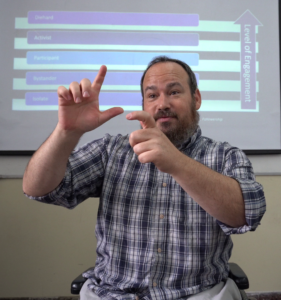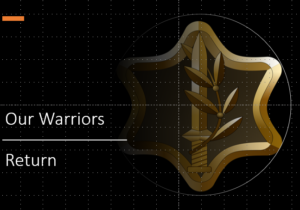I had a interesting thought today as I was reading the newspaper – what is it that connects the many different groups in a society. What is so strong that people who, for all intents and purposes, are complete opposites are still somehow connected…what is this thing called nationality? What is culture? What is civilization? Are these concepts so strong that despite bitter ideological disagreement people are still willing to be associated with each other?
And it seems like they are. Take Israel for example. It is a country deeply divided. Religious – Secular, Hawks – Doves, Capitalist – Socialist, Zionist – Anti-Zionist, Jewish – Other Religions (and the full spectrum that exists in any of these dynamic conflicts). And yet all Israeli, even if they are Israeli “hyphenated” as in Israeli-Arab, Israeli-Ethiopian, Israeli-Russian, Israeli-Bedouin, Israeli-French, Israeli-Anglo…etc. And only those who are second generation or greater may try to claim the title of Sabra – Israeli-Israeli born and bred. But in the end they are all Israeli…what a unique concept. And this allows people despite their political, social, religious, racial, gender, ethnic, cultural, and economic differences to have certain similar expectations – both from each other and the collective unit they are associated with.
And it is truly interesting to think the same is true for almost every other identifiable unit. They have rules that people are expected to follow. There are norms that result from the collective – either through experience, tradition, debate, or thought. And when someone, or something, acts in a way that is different, abnormal, illegal, disrespectful or shows disregard for the collective’s mutual contract/understanding the collective decides or permits specific units or representatives to decide the consequences – if any…
This collective, then, is extremely important. It is something that the independent units share and are willing to actively subscribe to and participate in, even if they abhor it. It is for this reason that states are unitary actors in the international system. It is why institutions are unitary actors within states. It allows states to act in coordination and to cooperate. It gives people the ability to influence government in ANY political system.
So when next someone says – I’m “choose your nationality” I think maybe I am going to ask – “Oh, and what are you doing about that?” Because we are not just what we say we are, we are either what we do or let others do in our name. And to suggest that this is not accurate for people in any collective is inherently false – even if they have been inculcated with the most outrageous or absurd concepts (N. Korea) – because this collective maintains the status-quo despite free will. Why? Because that free will is denied by unitary actors within the state, who are compelled to do so because of the collective wisdom associated with state and the consequences for failing to adhere to that collectively accepted norm…
So is it the norm, the collective, the unitary actor or all of them (and then some) which participate in this process? Well, it seems like all of them. But only if we are willing to see the world socially as the collective norms. What about interests that contradict the norms of the collective but are pursued by the unitary actors none-the-less? Are these any different than the norms and expectations of the collective? Does the collective even matter at these points in time?
It often seems like they do not. The collective does not appear to be the motivation for, nor the basis of, action by the unitary actor. Instead there is a hierarchy of ideas in which hegemonic ideas are actualized as long as they are not threatened. These ideas compete and seek to spread until they are brought to fruition. At which point they may spread more or seek to maintain the new status-quo.
What is interesting is this happens at all levels of unitary interaction – in which single units recognize and interact with each other.
More to come.



